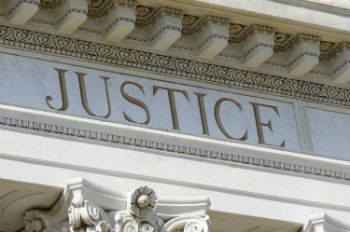 Pear v. City and County of San Francisco (No. H045045, Court of Appeals of California, Sixth District. Filed July 28, 2021.)
Pear v. City and County of San Francisco (No. H045045, Court of Appeals of California, Sixth District. Filed July 28, 2021.)
The Pear case involves a very high traffic area in Mountain View, California—namely the Target shopping center area off El Camino and near San Antonio. Of particular interest, the Pear opinion goes on at some length to parse out what uses are available to the Pear family, who hold the easement rights as the dominant tenement.
HOLDING: The Sixth District Court of Appeals found that the Pear’s easement over the land did not give them the right to have a parking lot for their commercial tenant, Target. The access language did give them the right to have customers drive over and across and (incidentally park) upon the Wheel Works auto bays.


 This is the time of year when I sum up big legal milestones in real estate. Unsurprisingly, COVID-19 was the driving force for emergency regulation in 2020 and most of the new law was due to the pandemic. In reviewing the real estate legal landscape in California for 2020, it’s not surprising that I would dub it The Year of the Lease.
This is the time of year when I sum up big legal milestones in real estate. Unsurprisingly, COVID-19 was the driving force for emergency regulation in 2020 and most of the new law was due to the pandemic. In reviewing the real estate legal landscape in California for 2020, it’s not surprising that I would dub it The Year of the Lease. Businesses are closed due to government mandate. In the San Francisco Bay area, other than in San Mateo county until it ended up on California’s county watch list, businesses like movie theaters, gyms, and salons have not been able to operate at all. What business can sustain four months to a year of no income?
Businesses are closed due to government mandate. In the San Francisco Bay area, other than in San Mateo county until it ended up on California’s county watch list, businesses like movie theaters, gyms, and salons have not been able to operate at all. What business can sustain four months to a year of no income? On April 6, 2020 by teleconference, the Judicial Council issued 11 temporary rules effective immediately. The full text of the emergency rules
On April 6, 2020 by teleconference, the Judicial Council issued 11 temporary rules effective immediately. The full text of the emergency rules  Co-author Josue Uribe Fonseca
Co-author Josue Uribe Fonseca Palo Alto City Council voted last night to adopt the Urgency Ordinance to halt residential evictions for COVID-19 related hardship.
Palo Alto City Council voted last night to adopt the Urgency Ordinance to halt residential evictions for COVID-19 related hardship.  The San José City Council has enacted a temporary eviction moratorium in response to the COVID-19 pandemic. The moratorium is in effect through April 17, and the City Council may extend it.
The San José City Council has enacted a temporary eviction moratorium in response to the COVID-19 pandemic. The moratorium is in effect through April 17, and the City Council may extend it. Neighbor disputes are expensive, time consuming, and there is no attorneys’ fees provision. The recent case of Madani v. Rabinowitz is one where the misplaced fence was moved, and the wronged neighbor received no damages.
Neighbor disputes are expensive, time consuming, and there is no attorneys’ fees provision. The recent case of Madani v. Rabinowitz is one where the misplaced fence was moved, and the wronged neighbor received no damages. Recently in the news we have seen articles about people traveling with their miniature horses or their pigs. Perhaps you may be wondering why is the airline permitting the miniature horse on the plane? The answer breaks down like this: if it is a miniature horse, it is likely a service animal and if it is a pig, it is likely an emotional support animal.
Recently in the news we have seen articles about people traveling with their miniature horses or their pigs. Perhaps you may be wondering why is the airline permitting the miniature horse on the plane? The answer breaks down like this: if it is a miniature horse, it is likely a service animal and if it is a pig, it is likely an emotional support animal. In California, a landowner has no enforceable property rights to an unobstructed view. That means, you can’t force your downhill neighbor to trim their trees. However, I have seen the occasional CC&R’s from planned communities that restrict heights of trees, plantings, and structures to ensure that the homeowners can enjoy their view.In those circumstances, the restrictive covenants are strictly construed against the person seeking to enforce them. American jurisprudence favors alienability and free use of land so that will be the default legal view.
In California, a landowner has no enforceable property rights to an unobstructed view. That means, you can’t force your downhill neighbor to trim their trees. However, I have seen the occasional CC&R’s from planned communities that restrict heights of trees, plantings, and structures to ensure that the homeowners can enjoy their view.In those circumstances, the restrictive covenants are strictly construed against the person seeking to enforce them. American jurisprudence favors alienability and free use of land so that will be the default legal view. In a recent opinion, the California Court of Appeal found that after foreclosure, all of the borrower’s leases (and its waivers) were assigned to the lender, and therefore unavailable as a defense to the former owner against a creditor. Therefore, the judgment creditor was successfully able to add two new parties to the judgment as the limitation the lease no longer shielded them.
In a recent opinion, the California Court of Appeal found that after foreclosure, all of the borrower’s leases (and its waivers) were assigned to the lender, and therefore unavailable as a defense to the former owner against a creditor. Therefore, the judgment creditor was successfully able to add two new parties to the judgment as the limitation the lease no longer shielded them. In the recent case of Southern California Edison Company v. Severns, the written easement described a 4 foot wide easement for the placement of five electrical power poles. The instrument went on further to provide that the grantee should have “free access” to maintain the electrical equipment. This created dispute between the grantor and the utility company because of the unspecified routes the utility company would take on the grantor’s property to access the easement. The court determined that the easement was in fact a “floating easement”.
In the recent case of Southern California Edison Company v. Severns, the written easement described a 4 foot wide easement for the placement of five electrical power poles. The instrument went on further to provide that the grantee should have “free access” to maintain the electrical equipment. This created dispute between the grantor and the utility company because of the unspecified routes the utility company would take on the grantor’s property to access the easement. The court determined that the easement was in fact a “floating easement”. California’s Fourth Appellate District came down with an unsurprising opinion that because a real estate broker has a duty to their principal to share information he or she possesses that will adversely affect the value of her property, an expert opinion is not required to establish breach of that duty.
California’s Fourth Appellate District came down with an unsurprising opinion that because a real estate broker has a duty to their principal to share information he or she possesses that will adversely affect the value of her property, an expert opinion is not required to establish breach of that duty. Continuing the trend in California caselaw, an appellate court concluded that no, the trustee does not have duties beyond the deed of trust itself and the governing statutes.
Continuing the trend in California caselaw, an appellate court concluded that no, the trustee does not have duties beyond the deed of trust itself and the governing statutes. It is well-settled California law that land owners are required to maintain land in their possession and control in a reasonably safe condition. California courts look to what are called the “Rowland factors” to evaluate if a duty is owed beyond the principles of Civil Code section 1714:
It is well-settled California law that land owners are required to maintain land in their possession and control in a reasonably safe condition. California courts look to what are called the “Rowland factors” to evaluate if a duty is owed beyond the principles of Civil Code section 1714: In the recent case of RANCH AT THE FALLS, LLC v. Keith O’Neal et al., a ranch owner tried to establish prescriptive or equitable easement rights along private roads to reach her ranch. Ms. Hart prevailed at the trial court level but was not so fortunate on appeal. California’s second Appellate District concluded that Ms. Hart had failed to meet the hostility requirement to establish prescriptive easement.
In the recent case of RANCH AT THE FALLS, LLC v. Keith O’Neal et al., a ranch owner tried to establish prescriptive or equitable easement rights along private roads to reach her ranch. Ms. Hart prevailed at the trial court level but was not so fortunate on appeal. California’s second Appellate District concluded that Ms. Hart had failed to meet the hostility requirement to establish prescriptive easement. In a case of first impression, the Second Appellate District concluded that assuming fraudulent intent, the UVTA (formerly the Uniform Fraudulent Transfer Act) applies to premarital agreements which treat after marriage earnings and assets as separate property.
In a case of first impression, the Second Appellate District concluded that assuming fraudulent intent, the UVTA (formerly the Uniform Fraudulent Transfer Act) applies to premarital agreements which treat after marriage earnings and assets as separate property. We are still seeing the effects of the subprime meltdown ripple through the appellate courts. In the case of Taniguchi v. Restoration Homes, what appears on first blush to be a straight forward analysis that under California law borrowers can stop a foreclosure sale by reinstating the loan had a twist.
We are still seeing the effects of the subprime meltdown ripple through the appellate courts. In the case of Taniguchi v. Restoration Homes, what appears on first blush to be a straight forward analysis that under California law borrowers can stop a foreclosure sale by reinstating the loan had a twist. This week the Supreme Court issued their opinion in Obduskey v. McCarthy & Holthus LLP. In 2007, Obduskey bought a house in Colorado, borrowed $330k from a lender and secured repayment of the loan with a mortgage (or deed of trust) against the house. In 2014, Wells Fargo hired the law firm of McCarthy & Holthus LLP to commence foreclosure as the borrower was in default.
This week the Supreme Court issued their opinion in Obduskey v. McCarthy & Holthus LLP. In 2007, Obduskey bought a house in Colorado, borrowed $330k from a lender and secured repayment of the loan with a mortgage (or deed of trust) against the house. In 2014, Wells Fargo hired the law firm of McCarthy & Holthus LLP to commence foreclosure as the borrower was in default. A new ruling from California’s 6th Appellate District clarifies what appeared to be a gap in what is permitted for post-judgment document discovery on third parties.
A new ruling from California’s 6th Appellate District clarifies what appeared to be a gap in what is permitted for post-judgment document discovery on third parties.




